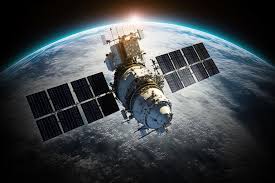Space Technology Development: Nigeria To Launch Four New Satellites
By Na'ankwat Dariem
Nigerian President Bola Tinubu has approved the launch of four new satellites to bolster the country’s space technology development.
This landmark initiative underscores Nigeria’s commitment to advancing its technological infrastructure and maintaining a competitive edge in the global space economy.
The Director General of the National Space Research and Development Agency (NARSDA), Dr Mathew Adepoju, announced this at the 8th Brig. Gen. Michael Agu (rtd) annual distinguished lecture and awards ceremony.
The event, themed “Nigeria’s 21 Years in Space: Achievements, Challenges, and Prospects,” was held at the Olusegun Obasanjo Space Centre Nigeria in Abuja.
Dr Adepoju disclosed that some Nigerian Satellites have been deorbited, while others are in the process of deorbiting, highlighting the need for replacement satellites to maintain the country’s relevance in global space development
“To address this, President Tinubu has approved the launch of four new satellites, comprising three optical satellites and one Synthetic Aperture Radar (SAR) Satellite, which will replace the existing Cintetic Reader satellite.
“These Satellites will enhance Nigeria’s capabilities in space exploration and development.”
Dr Adepoju outlined three key pillars under his leadership to drive the Agency which include; transformation, improving staff strength and private sector-driven initiatives to boost the space development in the country as well as NARSDA towards global competitiveness.
He said the Government alone cannot drive the National Space Programme, saying the private sector involvement is highly needed.
“We shall open the space for active participation of the private sector in Nigeria’s space ecosystem,” Adepoju said.
Earlier in her welcome remarks, the President of the Nigerian Society of Engineers, Margaret Oguntola, said over the past two decades, Nigerian engineers and scientists have worked tirelessly, launching Satellites collaborating with international space agencies, and advancing capacity in Satellite technology.
“This is a call for greater achievements. We must move beyond satellite launches and deepen our participation in advanced space exploration and innovation. Nigerian engineers, scientists, and technologists can lead Africa into a new era of space discoveries,” Oguntola affirmed.
And to achieve this objective, she charged Nigerian engineers to take ownership of this mission, and in particular our institution, the Institution of Space Engineers.
The National Chairman of the Nigerian Institution of Space Engineers, Dr Umar Abdullahi said there were setbacks related to; Satellite lifespan, funding limitations, policy inconsistencies and lack of manufacturing capacities.
“These challenges have tested our resilience and raised important questions about the sustainability of the space programme.
“Our journey in space has always been about more than technological success.it’s about solving real-world problems, combating flooding, enhancing food security, monitoring environmental changes and improving national security.
“Satellites have given us tools to better understand our world and address societal challenges,” he said.
The Research Director of NASRDA, Prof. Rabiu Babatunde said the way forward in addressing the challenges facing the sector was in the replacement of space assets- new satellite constellation reviewed road map, strategic international partnership, and commercialisation of Research Outputs
He said others include the development of Industrial engineering and inventions complex, establishing space technology and innovation fund as well as pace economic paradigm shift- Public Private Partnership.
The Highlight of the event was the conferment of fellowships and awards to distinguished Nigerians for their immense contribution to space technology development including former president Olusegun Obasanjo, who was conferred with the Grand Commander of Nigerian Space Exploration award.


Comments are closed.